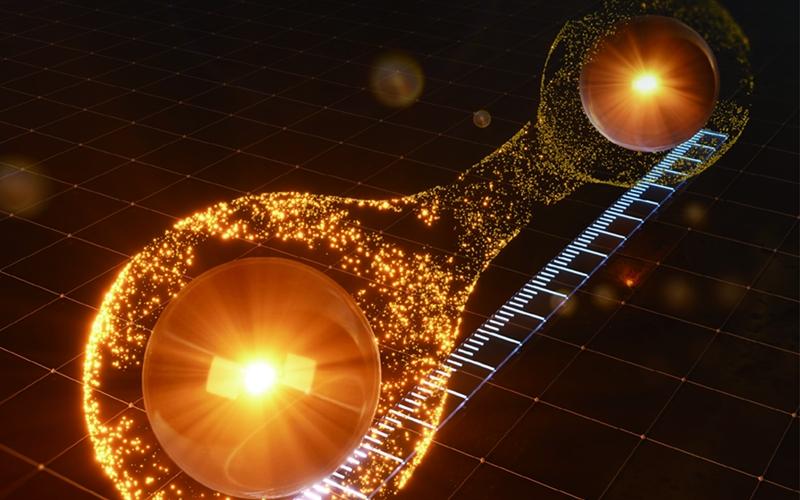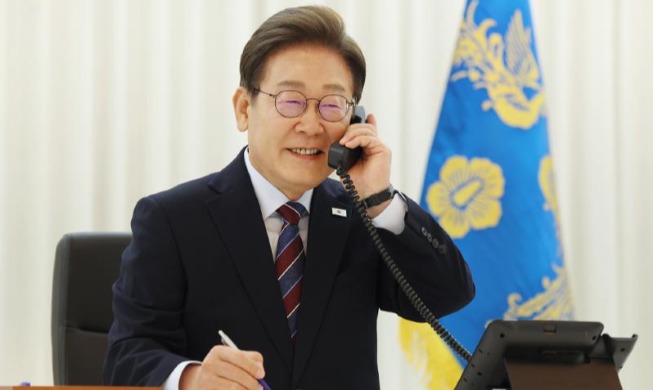
A domestic research team has achieved a world first by directly measuring the "quantum distance" of electrons in solid material. Shown is an image to intuitively express such measurement, with the two yellow balls representing electrons and the white scale below them a "ruler" to measure distance. (Yonsei Univ. professor Kim Keun Su)
By Kim Seon Ah
Domestic researchers have achieved a world first by directly measuring the quantum distance of electrons in solid material.
The Ministry of Science and ICT said the world's top academic journal Nature on June 6 published the results of a joint study conducted by teams led by professors Kim Keun Su of Yonsei University and Yang Bohm Jung of Seoul National University.
Quantum distance is a physical quantity that measures the quantum mechanical similarity between particles in a microscopic realm smaller than an atom. Expressed as zero if two states are identical and 1 if completely different, this concept is key data for evaluating the accuracy of quantum computations and tracking changes in state.
More recently, the quantum distance of electrons in solid material has grown more important thanks to the discovery of its close relation to complex physical phenomena such as superconductivity.
But quantum distances had been only indirectly estimated, with no cases of direct measurement.
The study focused on black phosphorus, which has a simple structure. The Yang-led team found that the quantum distance of electrons in this substance is determined by the phase difference of waves, and the Kim-led group precisely measured the intensity of the detection signal based on the phase difference through experiments using the technique angle-resolved photoemission spectroscopy.
"Accurate distance measurement is crucial for the safe construction of buildings, so precise measurement of quantum distance is also essential for developing quantum technologies that run accurately without flaw," both professors said in a statement. "Our findings can be used as basic tools for a range of quantum technologies such as quantum computing and sensing."
sofiakim218@korea.kr
